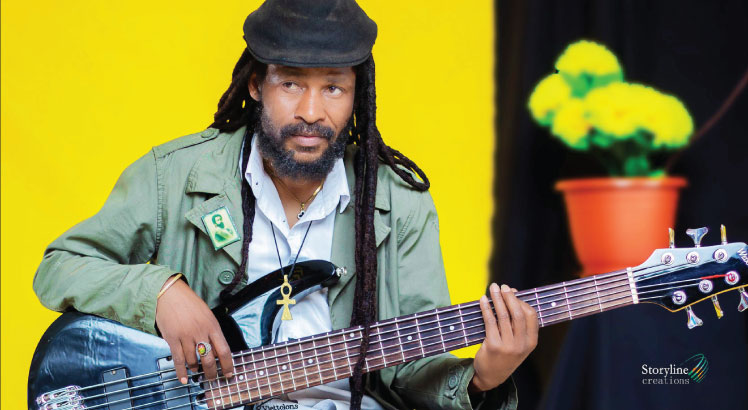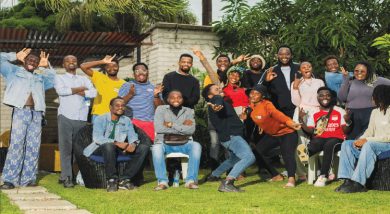Reggae music needs patience
Reggae music has a huge following in Malawi. Over the years, suggestions have been flying around that the genre is diluted and that not many reggae hits are coming out of the country. One of the local reggae artists who has been consistently releasing reggae music is Ndindi Mally. Our correspondent Holyce Kholowa caught with him to discuss reggae music in Malawi and more. Excerpts:

Q
: Who is Ndindi Mally?
A
: My name is Ndindi Mally. The ‘Mally’ in my name is usually mistaken with that of Bob Marley. But this Mally of mine is my real surname. I ventured into music in the 1990s. My first single song called Amayi woipa was recorded in 1997 when Professor Edge Kanyongolo, former University of Malawi associate professor of law, sponsored it. This was after he got impressed with my talent as I used to sing at different activities in Zomba. So, after hearing my voice on radio, my inner interest and conviction in reggae music was boosted. This motivated me to work hard in reggae music until 2007 when I recorded the first album Moto wa gas which included the sensational hit Ndigona komkuno.
Q
: What are your observations of the status of reggae music in the country?
A
: The roots of reggae music are slowly being uprooted such that if we are not careful Malawi will no longer have the muscle in the music. The big problem is that most artists are rushing for fame and money forgetting that reggae music is a mission and those venturing into it need to have a real purpose. To be precise, reggae music is noted for its tradition of social criticism and religion in its lyrics and is often incorporated with local instruments and fusing with other genres. But, if one listens to some of the self-acclaimed reggae artists, you will notice that they are diluting the core purpose of reggae.
Q
: Where is the current generation missing it?
A
: Hunger for money as pointed out earlier is the major challenge degrading reggae music in the country. If you dig deeper in history, notable reggae legends like Bob Marley, Peter Tosh, Joseph Hill, Lucky Dube and Evison Matafale could take almost five-years without producing any music. Not that they were on holidays, but in their time of silence, they were composing and recording reggae music that could stand for ages. Therefore, it surprises me these days to see an artist every year or every month producing a song. This is why reggae music is no longer vibrant in the country because there is a lot of half-baked music which lasts for a short time leaving no impact to the world. The other factor fuelling the dwindling of reggae music is the coming of technological or computerised recording studios. To be clear, I do not mean that technology is bad, but as far as reggae music is concerned, it needs natural instruments that when played body instincts should respond. For instance, computerised pianos, drums, guitars and other instruments’ impact cannot be compared to the manual instruments. Learning from our own departed Matafale, he fused various instruments like spoons in his songs to ensure that the songs should meet their purpose. That is why if you listen to Matafale and other reggae legend artists’ songs today, they sound as if they are just produced today because they invested time and resources in the production stages.
Q
: What should the current or aspiring reggae artists do to keep the roots of reggae deeper?
A
: Patience is a virtue in reggae music. Reggae music discusses critical issues not lighter things. Reggae music destroys violence and plants peace. It uproots conflicts and plants tolerance. Therefore, anyone passionate to venture into reggae music should consider himself to be a seed of peace not just looking for fortunes. Secondly, aspiring reggae artists should have other sources of income. This is important because the artist always has enough time to perfect his music instead of releasing the songs too fast to sell. This tarnishes the image of reggae music because music done in a hurry lacks objectivity and ingenuity. The local reggae artists of the 1990s like Matafale, Gracium Nyambo, Limbani Banda and others did not follow money and fame, but money and fame followed them after they produced quality reggae music. In other words reggae music is a mission and those involved in it should venture as a calling just as other people are called to be priests, evangelists, prophets and apostles. For instance, I run a restaurant and I also do paintings which bring food on my table. Thirdly, aspiring reggae artists should have mentors. This means before and after recording their songs they should let the mentors listen to them. Nobody can claim to be a fan of reggae music without being inspired by other reggae artists, both local and international. For instance, Lucky Dube was my mentor. Unfortunately, few days before I arranged and booked to meet him physically in South Africa for mentorship, he passed on. But I proceeded to South Africa to meet with Senzo who mentored and supported me to produce the Jah Bless album. These seasoned reggae artists have experience and their input in songs lead to the new artist’s landslide entry and settlement in the reggae music arena.
Q
: Since 1997 how many albums have you released?
A
: I have three albums to date. Coincidentally, I produce them at a length of 10 years because the second album I produced in 2007 called Jah Bless which I recorded in South Africa and the latest one was produced in 2017 called Dream Season. So far, I am in studio recording which might be ready in few years to come.
Q
: How should people treat reggae music?
A
: Reggae music is a tool. It is an instrument of fostering unity and humanity. It should never be mistaken with marijuana or other propagandas people associate it with. That is why for those who listen to reggae music critically they will hear the gospel like ‘Christ’ and other religious names and messages in the songs. This is a sign that reggae music is for everyone and every time.





